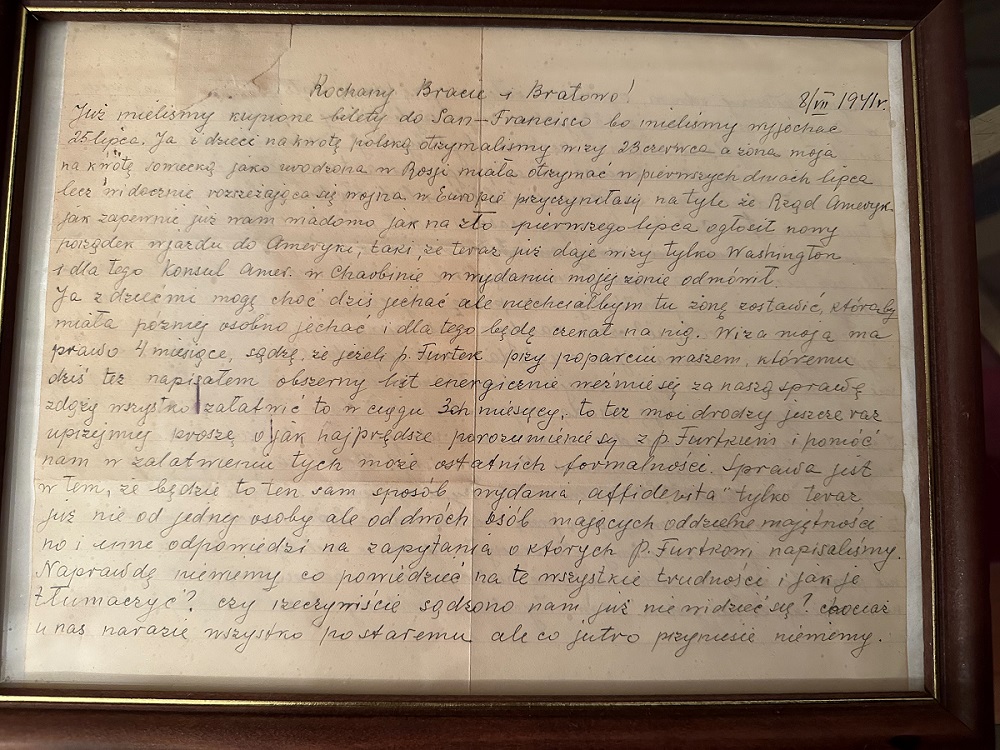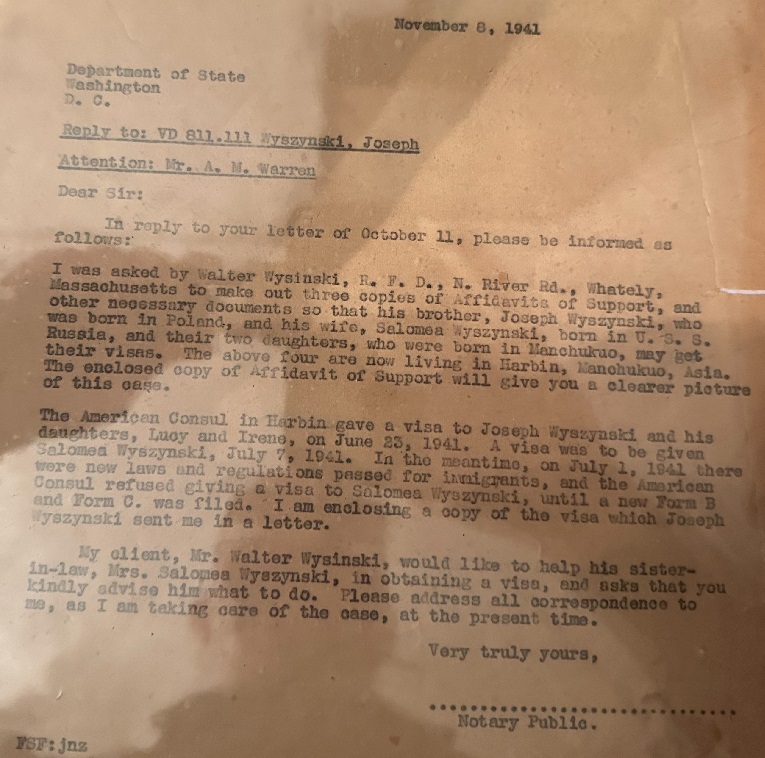On July 8, 1941, Joseph Wysinski wrote a letter from Manchuria to his brother, Walter, in Whately, Massachusetts, asking him for help. Joseph was troubled by the delay in receiving an American visa for his wife, who was subject to a Soviet quota. He and his daughters had visas valid for four months and the family had tickets for departure on July 25th, to San Francisco. He feared that his wife might not receive a visa in time because, four months before Japan’s attack on Pearl Harbor, World War II was had intensified.
Manchuria’s sizable and vibrant Polish community was largely the result of the important role played by Polish engineers and railway workers in the building of Russia’s Trans-Siberian Railway between 1891 and 1916. That railway was extended through Manchuria to connect with Port Arthur, and ran through the city of Harbin, which developed large Russian and Polish populations. By 1941, however, the United States Consul in Harbin no longer issued visas. They could only be acquired directly from Washington.

Joseph’s brother Walter contacted local businessman, Felix Furtek, for help. One of his businesses was set up to make arrangements for Poles to come to the United States to live. So, he wrote this letter on November 8, 1941, to the U.S. State Department requesting that the State Department expedite a visa for a family living in Manchuria. The family’s fate was unclear. However, after the Polish Center‘s founder and former Executive Director, Stas Radosz, presented a paper in Deerfield, one member of the audience informed him that one of Joseph Wysinski’s daughters was alive. The audience member promised to bring the woman to the Center, but we don’t know if she ever did.

Felix Furtek came to the United States in 1900 and became a successful businessman by establishing the Polish National Credit Union in Chicopee, MA. The Polish National Credit Union provided services to help Polish immigrants, who came to settle in the area. Besides establishing the Credit Union, Furtek was also the first Pole to be elected into a public office in Chicopee, when he was elected to the Chicopee School Committee.